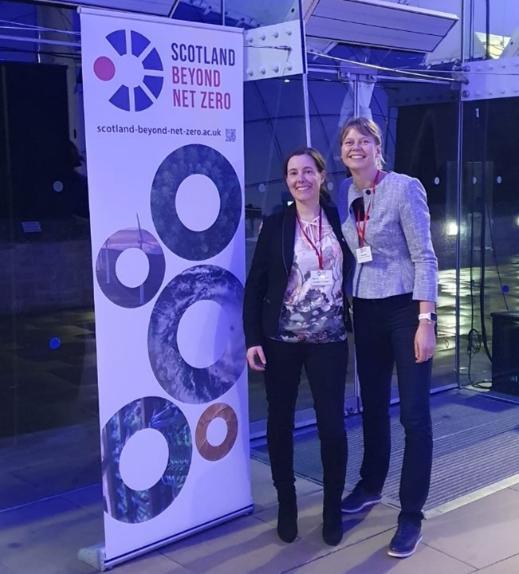Scotland Below Net Zero Launch | Dynamic Earth | January 2024
Published: 3 February 2024
SCAF collaborative approach and focus showcased at launch of the new initiative
New Scotland Below Net Zero initiative seeks to build a culture of collaboration between disciplines and institutions.
On the 23rd of January, the Scottish Government’s Cabinet Secretary of Transport, Net Zero and Just Transition, Màiri McAllan, announced the launch of the Scotland Beyond Net Zero (SBNZ) Initiative, a partnership between Scottish Universities, spearheaded by the Universities of Edinburgh and Glasgow.
The launch, hosted at Dynamic Earth, underlined how no one government, business, organisation or community can reach and go beyond Net Zero alone. Instead, a collective approach is needed, using all knowledge, ideas and expertise. Guests from academia, industry, government and the public joined representatives from the universities to celebrate the new initiative. The Scottish Alliance for Food was showcased as an example of collaboration across disciplines and sectors, with Prof Combet discussing the alliance vision and approach to collaboration with the cabinet secretary and the principals of the two universities.
The SBNZ initiative is designed to drive research collaboration, empower communities and inform policy-making and action across the fields of food, transport, finance, built environment, natural systems and energy.
Approximately 21-37% of total greenhouse gas emissions can be attributed to food systems, leaving plenty of opportunities for research and improvement. Changes in dietary patterns, shifts in agricultural procedures, technological advancements, and improvements in waste reduction are routes towards net zero.
Each SCAF theme (1. mapping, 2. innovation, 3. culture, heritage and behaviour, 4. food security, environment & community) is relevant in the exploration of novel co-created research towards solutions and innovations for net zero.
The SBNZ initiative will be another important facilitator in fostering collaboration between SCAF researchers and members as well as collaboration with stakeholders in different disciplines. Indeed, the work of our sister ARC, the Scottish Research Alliance for Energy, Homes and Livelihood, was also represented at the event.
First published: 3 February 2024
<< Blog

Both SFC-funded alliances were represented at the SBNZ launch event.

